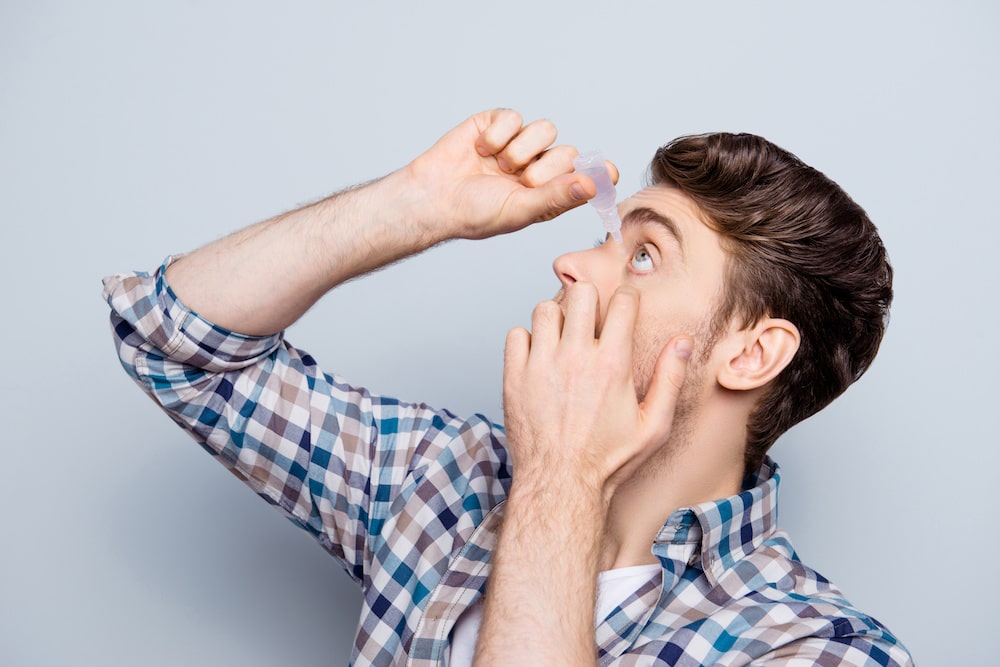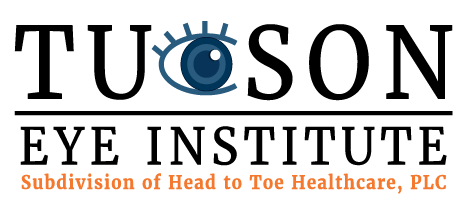Eye Conditions
The importance of healthy eyes and clear vision cannot be overstated. Nearly every job, every hobby, every task—everything you do benefits (if not outright depends) on being able to see clearly.
That’s why whenever your eyes are injured, suffer from acute inflammation or infection, or develop a progressive disease, you should get them checked and treated immediately. Routine eye exams, scheduled once per year, will also allow your optometrist to identify the early warning signs of progressive diseases like cataracts or glaucoma and treat them before they become serious.
Eye problems can often lead to permanent complications and vision loss if you let them, but most can be fully treated and prevented.

Acute Eye Conditions
Acute conditions and injuries to the eye tend to spring up quickly. Some acute conditions may go away in time, but others can damage your eyes permanently if not treated promptly. If you’re having any problems with your eyes, please see us as soon as you can.
Acute conditions we treat include (but are not limited to):
- Conjunctivitis (pink eye): An infection of the inner eyelid and outermost layer of the eye whites. Eyes appear pink or reddish and may be painful. Conjunctivitis may be caused by a virus, bacteria, allergies, or even chemical injury.
- Dry eye: Ordinarily, your eye stays lubricated and nourished by constantly producing basal tears. If tear production drops below a minimum threshold (or the tears are of low quality), your eyes may experience scratchy, stinging, or burning sensations. We specialize in diagnosing the exact cause of your dry eyes (there are several possibilities) and prescribing appropriate countermeasures.
- Corneal ulcer: The cornea (a thin, clear structure over the colored part of the eye) develops an open sore and becomes inflamed of infected. It can cause blindness in the eye relatively quickly, if severe and not addressed by a professional.
- Foreign objects: Although the eyes are designed to keep out foreign objects, including eyelashes, dried mucus, cosmetics, or specks of dust, wood, or metal, occasionally these irritants get through. Trying to remove large bodies yourself may only make the situation worse.
If you’re experiencing any uncomfortable symptoms, including eye pain, blurry vision, dry (or watery) eyes, itching, swelling, etc., we can help.
Eye Diseases
Progressive or chronic eye diseases may develop over time, slowly damaging the eye and reducing the quality of your vision. Often these conditions can be prevented, treated, or otherwise managed if caught early. If not, they can result in permanent vision damage or loss. Example of eye diseases include:
- Cataracts: The eye lenses become cloudy over time—typically starting around age 60—and lead to blurry vision. We offer conservative treatments to improve vision and slow the progression of cataracts. Serious cataracts are referred to a cataract surgeon.
- Glaucoma: The term “glaucoma” can actually refer to any of several diseases that affect the optic nerve. Because of this, treatment is very individualized after baseline testing, and varies from patient to patient. Fortunately, severe complications (such as vision loss) are almost always preventable if the condition is managed properly.
- Macular degeneration: The macula, located at the center of the retina, is responsible for your central vision and is typically the keenest and most sensitive part of the retina. If you have macular degeneration, this portion of tissue breaks down, distorting and blurring central vision (while leaving peripheral vision intact).
Age-Related Decline
Unfortunately, just like any other part of your body, your eyes begin to suffer from age-related performance issues as you get older, especially after the age of 60. The lens thickens and loses some of its elasticity, leading to a gradual loss of your ability to focus on objects up close (presbyopia). Most people lose the ability to see clearly in low-light environments as well.
Although these changes are not preventable, they can be managed with prescription eyewear (including bifocals or trifocals for variable distance focusing), allowing you to maintain the highest possible level of visual performance.

Healthy Eyes, Healthy Life
We’re all guilty of taking our eyes for granted from time to time—until they stop working correctly! Please don’t risk your long-term vision and health by not seeking help for a problem. Make sure you get your eyes checked regularly! Schedule an exam today by calling our Head to Toe Healthcare Tucson office toll free at (520) 585-5717.
Contact Us
Office Hours:
Monday - Friday
8:00AM - 5:00PM
By Appointment Only:
First Saturday of the month from 8:00AM - 2:00PM
